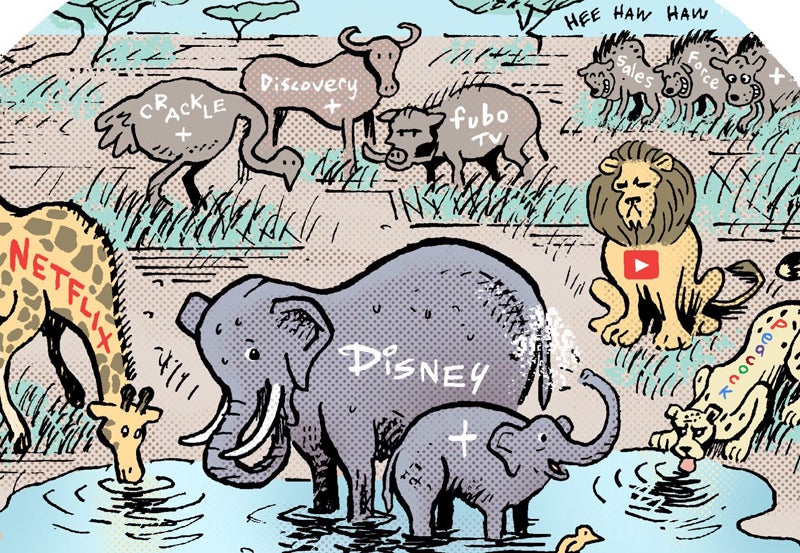In this decade, we have witnessed two of the most major collapses in the history of the US economy, rivaling in scope to the Great Depression but luckily not rivaling the Depression’s impact on the employment index and run on banks, among other things. In the past two weeks alone, we have witnessed the government takeover of the two firms responsible for backing more than half of all domestic mortgages, the last minute buyout of one of the top five largest banks, the bankruptcy of 150 year old also top five bank, and the $80+ billion dollar injection of public funds for the largest insurance carrier. Add to that the collapse of one of the largest mortgage banks just a month ago and the fire sale of yet another top ten bank just a few months back, and the crisis hitting the financial markets far exceeds anything witnessed during the burst of the dot-com era. Perhaps worst of all, for as much as it feels like the denouement, we might have just hit the beginning of the end, not the end of the end. There is no bigger story right now than the implosions as a result of the mortgage mess and credit crunch, but for all of its significance, as a story, it simply is too great to grasp. Everything we have witnessed to date is simply a warm-up for the mess that we will have to work through, one brought upon not by impropriety and fraud such as that from Enron in Collapse 1.0 but one brought on from folly not too dissimilar from the Dutch Tulip Bulb mania of the 1600’s. This round involved more complicated financial instruments but arbitrary ones nonetheless.
Despite the immense pressure being faced by the economy and by the tens of thousands of people who will lose their jobs in the next thirty days, the economy still has its share of winners and opportunities. In this time of crisis and uncertainty, there might be no better time to appreciate the success still available to those willing to take the risk, even now, when all seems at a low. Maybe not more than ever, but still in great numbers, people have taken the plunge to begin a new business and/or take a fledgling idea to the next level. These people should inspire us all and remind us that the foundation for greatness exists no matter how others might fare. Many of those reading, have thought about creating a venture on their own, and chances are that more than a few will do so before the year comes to a close. The question that many will have will not be ‘When’ but ‘Who,’ i.e., not when should they begin their venture but with whom and how will our relationship work. The question they face is one that countless new business owners grapple with even if they haven’t articulated it as such. It’s the question of whether the person with whom they begin the venture is their partner or just an early employee. It’s what we call "People versus Partners." They might sound similar, but there is a huge difference down the line, and in the rush to get the business off the ground, the initial founder might initially feel like sharing more than they would in hindsight – eager to scale that they give up too much for that initial momentum.
What’s the distinction? Partners are your business spouse. The partner is someone that you not only need now for the business to work, but the person you want to have around with you in business sickness and in health, for good times and bad, etc. People are at best cousins, and generally in-laws even at that. You welcome their company at holidays and gatherings, even as company on a trip, but their presence has more to do with timing than true necessity. The partner is one where if you win the lottery, i.e., you bought the ticket, picked the numbers, basically everything, you would still split the winnings according to the percentage ownership of the company and not think twice. You wouldn’t think twice, because without your partner (or partners), you might not have found yourself in the position to even buy the ticket in the first place. It’s an important distinction, because sometimes the roles that people and partners play overlap. As a heuristic, though one way to think about the distinction is to consider what you would do if money weren’t an issue. Is the person with whom you are about to engage in work someone that you could hire? If it is someone you can hire, then the next question is why you feel compelled to have them begin with ownership as opposed to working towards it. If you have worked for a startup that gave options, you weren’t a partner. Getting options, though, allowed you to work towards ownership, even potentially a large stake, but it was over time. You didn’t own your stake of the company from the start. As a potential business founder, in other words, you have options, no pun intended.
The reason to make the distinction between people and partners is ultimately a large one, and it doesn’t just come down to money. Like a relationship, it’s planning for when times do not go well that are more important in this case. It’s the same whether you take the lead to find your partner or someone else reaches out to you for you to join them. In addition to the spouse analogy, ask, who holds the business key – does one person have an asset the other doesn’t. Is it only one-sided or do you both need each other to unlock the full potential. If you are "a" and the other person "b", is the business "c"; or, is the business "a" with some "b" or conversely, "b" with some "a". People are the "b" to your "a" as opposed to the one that without you can’t have "c." Make a person your partner, and you might do well, but down the road, conflict will arise. You could be the partner that makes the person your partner or someone brought in as a partner where you should be just the person. Either way, it’s good to know so you can prepare for what lies ahead and try to reduce the likelihood of a major roadblock in the future, especially if you bring an asset (like technology to the organization). You may really like the person and want to work with them, but if there is potential inequality, plan for it in advance. You can still make a person your partner, but keep the technology separate from that business.
Leave yourself room to have future partners; you can allow yourself a chance to work with them but still with a life boat in case that ship sinks.



